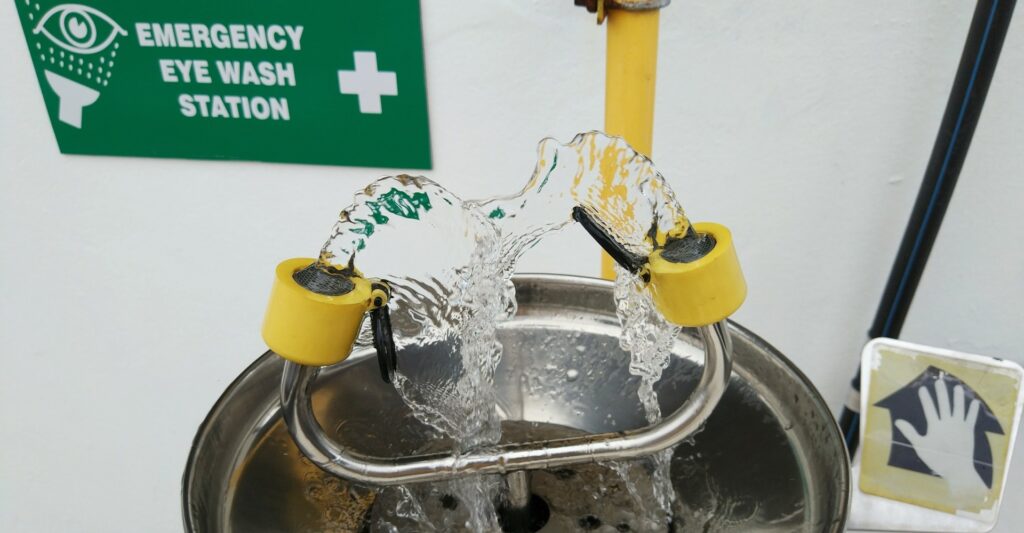Our eyes are far more than just the windows to the soul. Every hour of the day that we are awake, our eyes work to let us see the world around us. Unwanted injuries can happen when we least expect them, which is why it’s essential to take proper care and precautions to prevent unwanted injury.
What Is an Eye Emergency?
When your eyes aren’t performing like usual, it can be very troubling. However, not everything that occurs with your eyes is necessarily an emergency, so how can you tell what is and isn’t an emergency? It’s recommended to seek immediate care for:
- Blunt head or eye trauma
- Sudden changes or loss in vision
- Cuts or abrasions on the eye
- Eye infections
- Foreign body in or near the eye
- Injury caused by contact lenses
- Flashes and floaters in your vision
However, most importantly, if you are worried about your eyes, you should contact your eye doctor immediately. Like many other parts of life, it is better to be safe than sorry with your vision.
Common Eye Emergencies and How to Avoid Them
There is always a chance of an unexpected and unavoidable injury to your eyes. Still, with a little knowledge and preparedness, you can avoid the most common types of eye emergencies.
Eye or Head Trauma
If you sustain a blow to your eye or head, it can cause more damage than you might think. Experiencing head trauma, concussions, or being involved in an accident can leave you with lasting injuries if you are not careful.
Thankfully, there are steps you can take to minimize the chances of sustaining head or eye trauma. If you play a sport or engage in risky activities, be sure to don the proper protective equipment like helmets and eye gear. And, remember always to wear your seat belt when in a car. If you experience any form of head trauma, an examination by a doctor is highly recommended to determine if your eyes have been affected.
Foreign Body
Sometimes unwanted debris can get into your eyes and cause irritation and injury. Unfortunately, there are countless ways debris can find its way into your eyes. Whether you are gardening or at work, living life means being at risk of coming in contact with foreign bodies like dirt, dust particles, or even metal shards.
When you are taking part in more risky activities, you can take steps to avoid foreign bodies. The smartest thing to do is use caution and common sense to determine how best to complete the activity safely. In many circumstances, you can also protect yourself by wearing eye protection. Remember to regularly inspect your protective eyewear for any signs of wear and tear and replace them as needed.
The number one detail to remember if you find a foreign body in your eye is to avoid rubbing or applying pressure and get to a doctor for extraction as soon as possible.
Contact Lens Injury
Contacts are a great everyday solution for people with vision impairments – however, they can also pose a problem for potential injury if misused. The ways to prevent your contacts from causing an injury comes down to using them correctly. Here are a few pointers to avoid a contact-related injury:
- Avoid sleeping with your contacts in
- Dispose of your contacts when expired to avoid unwanted rips and tears
- Practice proper lubrication when wearing your contacts
If you have questions about correctly using your contacts or if you think you’ve sustained a contact-related injury, reach out to an eye doctor right away.
Chemical Injury
While the workplace is a culprit of chemical eye injuries, you are just as likely to sustain damage at home. Many everyday household cleaning and care solutions produce fumes that can cause problems. Some can even cause chemical burns that can result in permanent eye damage if not tended to immediately. Chemical injuries can be avoided in several ways, from practicing caution when working with chemicals and donning protective clothing to exploring the benefits of more natural cleaning products.
However, if a chemical injury occurs, it’s essential to wash your hands, flush your eyes with clean water or saline, remove any corrective eyewear, and seek medical attention immediately.

Steps You Should and Shouldn’t Take
Whether your eye injury happens in the workplace, during a recreational activity, or in everyday life, there are both steps you should take and make sure to avoid.
What Shouldn’t You Do in the Case of an Eye Emergency?
- Do not rub or apply pressure to your eyes – this will only cause further irritation and potentially worsen the injury.
- Do not remove a foreign body on your own with household items like cotton swabs or tweezers.
- Do not use any medication or ointment without your doctor’s recommendation.
What Should You Do After an Eye Emergency?
- When needed, flush eyes with saline or clean water.
- Try to avoid moving the affected eye around too much – it’s often helpful to gently hold a clean cloth over the eye until you reach the doctor.
- Seek medical attention immediately. The longer you wait to handle an eye emergency, the more likely you will have lasting damage.
Schedule Your Urgent Care Services Today
By taking the time to understand the most common types of eye injuries and how best to avoid them, you can protect your eyes. But should the worst happen, don’t hesitate to reach out to your eye doctor and get the medical care you need. That way, your eyes can continue to show all the beautiful experiences the world has to offer.

